COOKBOOK
Mennonite Community Cookbook
Eleven hundred mouth-watering recipes from old Mennonite cookbooks, brought up to date with standard measures and directions. Simple but wonderful country cookery contributed by Mennonite families all over the United States and Canada.
Who are the Mennonites?
Mennonites, rooted in the Anabaptist movement, are Christian communities named after Menno Simons (1496–1561), a Dutch leader. They emphasize Jesus’ mission and reject violence. The 1632 Dordrecht Confession codified their beliefs, like believer’s baptism and pacifism. From Old Order Mennonites shunning technology to Conservative Mennonites blending beliefs with modern life, their diversity is seen globally across 87 countries. Mennonites hold ordinances such as baptism and communion. Their history spans persecution, migration, and the influence of Menno Simons in uniting nonviolent Anabaptist groups. (Source: Wikipedia)
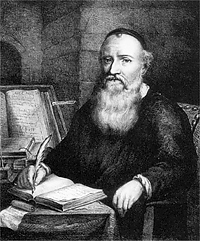
About the book
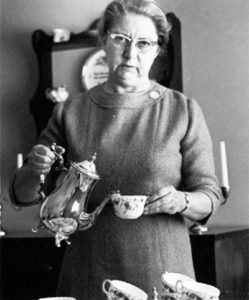 The Mennonite Community Cookbook, authored by Mary Emma Showalter (1913-2003), is a journey into the world of family recipes and the rich culinary heritage of Mennonite communities. Through the lens of her own experiences and observations, Mary Emma Showalter shares the story of how handwritten recipe notebooks have played a significant role in preserving tradition and connecting generations.
The Mennonite Community Cookbook, authored by Mary Emma Showalter (1913-2003), is a journey into the world of family recipes and the rich culinary heritage of Mennonite communities. Through the lens of her own experiences and observations, Mary Emma Showalter shares the story of how handwritten recipe notebooks have played a significant role in preserving tradition and connecting generations.
The journey begins with the author’s childhood memories, as she reminisces about her mother’s little blue notebook—the repository of her favorite recipes. These hand-written treasures weren’t just collections of ingredients and instructions; they held a special place in her mother’s heart.
Within these pages, the author recounts how these notebooks were more than just personal compilations. They were vessels of shared memories and connections, as friends and relatives contributed their specialties, often named after the donor. The anecdotes paint a vivid picture of a time when recipes were passed down through personal encounters and cherished relationships.
The author’s explorations take her from her grandmother’s kitchen to her college days, where she encounters beautifully illustrated cookbooks. However, her own experiences and travels soon lead her to the realization that hand-written recipe notebooks are still alive and well, particularly in Mennonite communities. These notebooks bridge generations and geography, preserving a culinary tradition that transcends time and place.
One of the driving forces behind the author’s efforts to compile these recipes is the recognition that these notebooks and the recipes within are at risk of fading away. As she travels through Mennonite communities across the United States, she witnesses the decline of these cherished handwritten books, pushed aside in favor of modern conveniences. The author’s determination to preserve these traditions is motivated by the understanding that these recipes are a link to the past, a connection that should not be lost.
The author compiles a collection of over 1,100 recipes from more than 5,000 submissions, sourced from Mennonite communities in the United States and Canada. These recipes range from the old-world classics that have been handed down for generations to contemporary favorites that cater to modern palates. The author’s commitment to preserving tradition is evident in the testing and adaptation of these recipes, ensuring that they are accessible and relevant for today’s cooks.
Embedded within the pages are not just recipes, but stories that transport readers to a time when the kitchen was the heart of the home. The author’s own grandmother, an integral part of her culinary journey, shares stories that provide context and depth to the recipes.
In essence, Mary Emma Showalter’s book is a tribute to the culinary legacy of Mennonite families—a celebration of the handwritten recipe notebooks that have carried tradition, love, and flavor through the ages. It’s a call to preserve the recipes that define a culture and a community, ensuring that they continue to be passed down for generations to come.
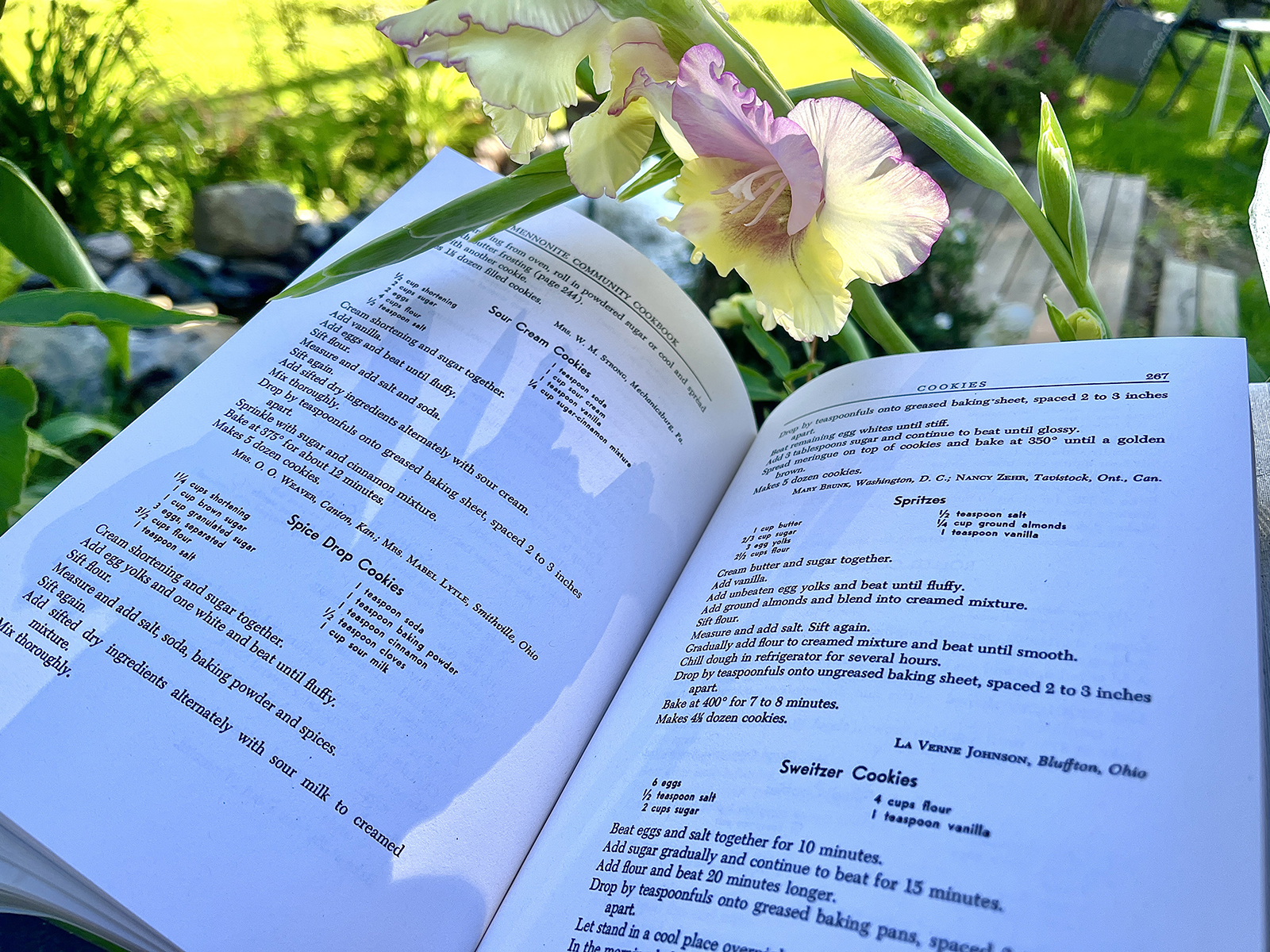
My review
Mary Emma Showalter‘s book opens with a resonating truth: “among the cookbooks on the pantry shelf at home there has always been the little hand-written notebook of recipes.” This sentiment strikes a chord with most of us, evoking memories of our mothers’ and grandmothers’ cherished handwritten recipes. These notebooks are more than just culinary guides. Showalter’s book captures this essence beautifully, preserving and passing on these recipes for generations to come.
Growing up, my mother, too, treasured her collection of handwritten recipes from friends and family. These precious recipes, lovingly crafted and shared, are the very treasures that need safeguarding today. Mary Emma Showalter’s book embodies this purpose perfectly.
Within its pages lie recipes steeped in history, some dating back hundreds of years. The effort to collect and adapt these recipes for the modern palate is undoubtedly monumental. They’re a taste of the past, a portal to times gone by.
Exploring the book’s contents, I’ve sampled several dishes, in the book. Some recipes, like the Foamy Salad, might seem unconventional with their unique blend of ingredients. For instance, the combination of mayonnaise and cabbage in a sweet dish raises questions. Could this fusion be born of necessity, a creative response to limited resources? These recipes mirror a time when resourcefulness was key.
What’s truly captivating is the familiarity of certain recipes that mirror the flavors of my own childhood, echoing the dishes my mother lovingly prepared. This leads me to ponder if recipes could be conduits to exploring our family histories. By diving into the origins of handwritten recipes, could we uncover hidden tales of our ancestors? The origins of recipes might well be the origins of our stories.
In summary, “The Mennonite Community Cookbook” is a treasury of culinary heritage, a dedication to the soul of Mennonite families. These recipes offer simplicity and nostalgia. The modern culinary landscape is replete with intricate dishes requiring an array of ingredients, yet the cookbook’s recipes stand out for their straightforwardness. There’s an enchanting power in such simplicity.
In conclusion, Mary Emma Showalter’s work captures the essence of food culture and heritage. It’s a celebration of the handwritten recipes that bind generations and cultures, nurturing the human spirit through the shared experience of meals. As we navigate the future, this cookbook stands as a testament to the past, a legacy to be handed down, enriched with new memories and stories.
Recipes from the book
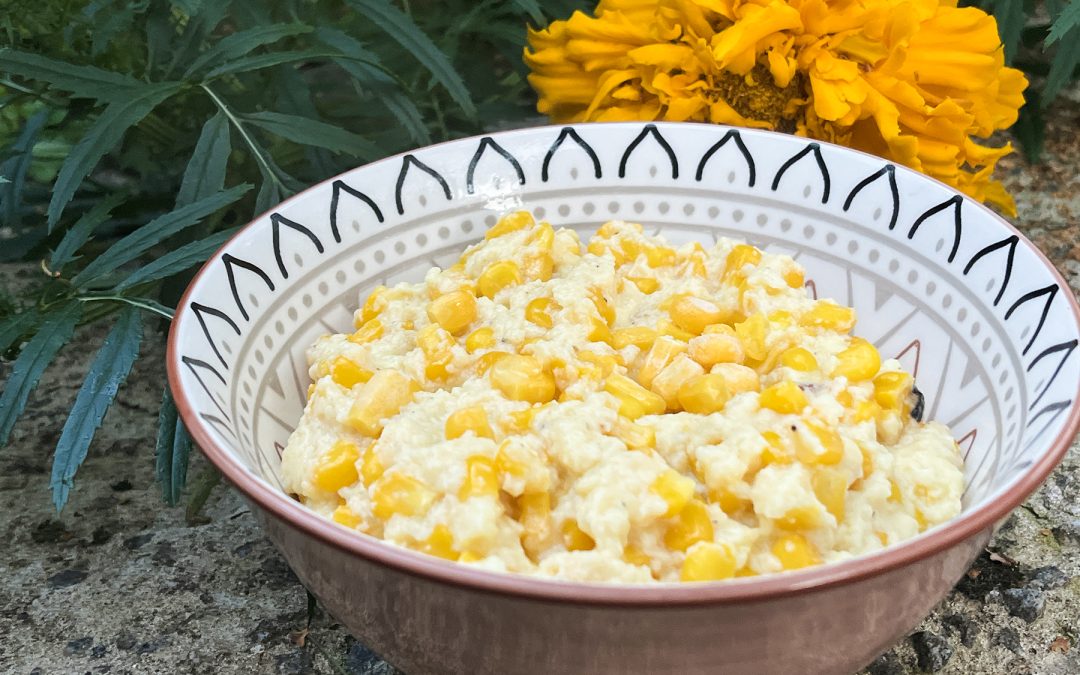
Fried Corn
Fried Corn - a recipe from the Mennonite Community Cookbook This is a very easy recipe to prepare,...
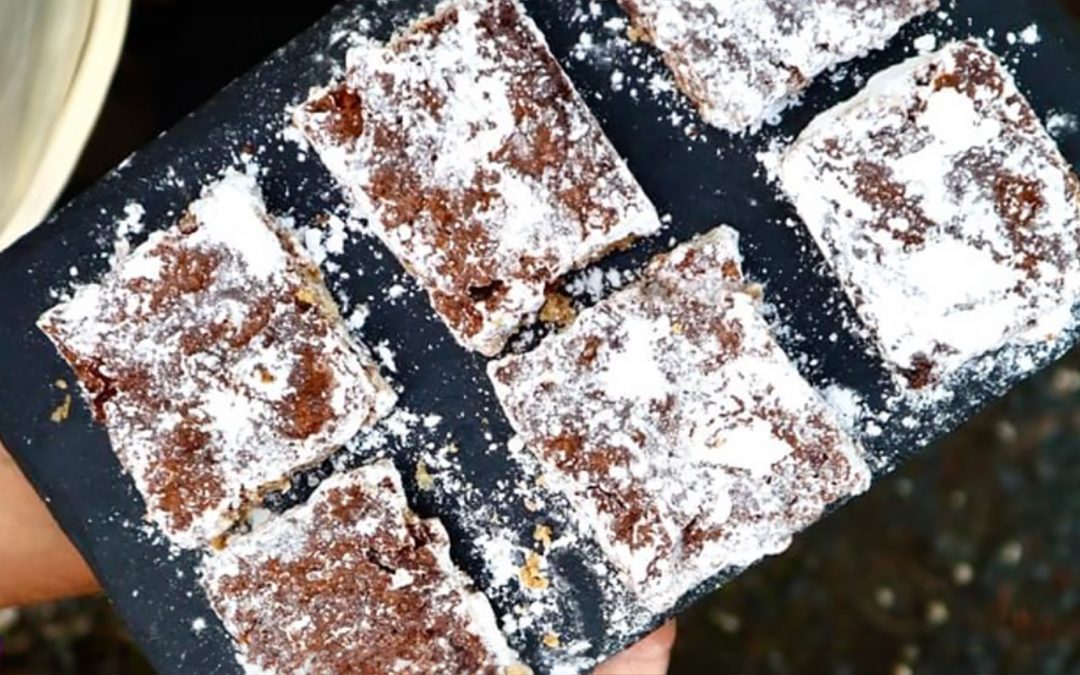
Dream Cake
The Dream Cake from the "Mennonite Community Cookbook" is a slice of tradition. From the tender...
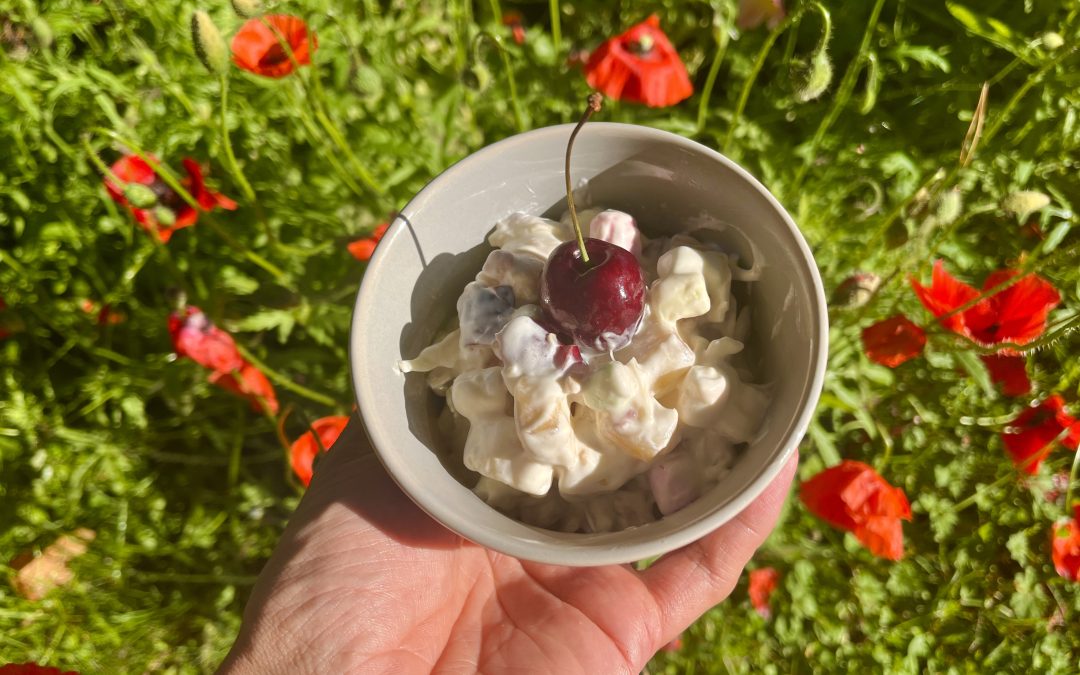
Foamy salad
Foamy Salad from the Mennonite Community Cookbook. This delightful dish combines an unexpected,...
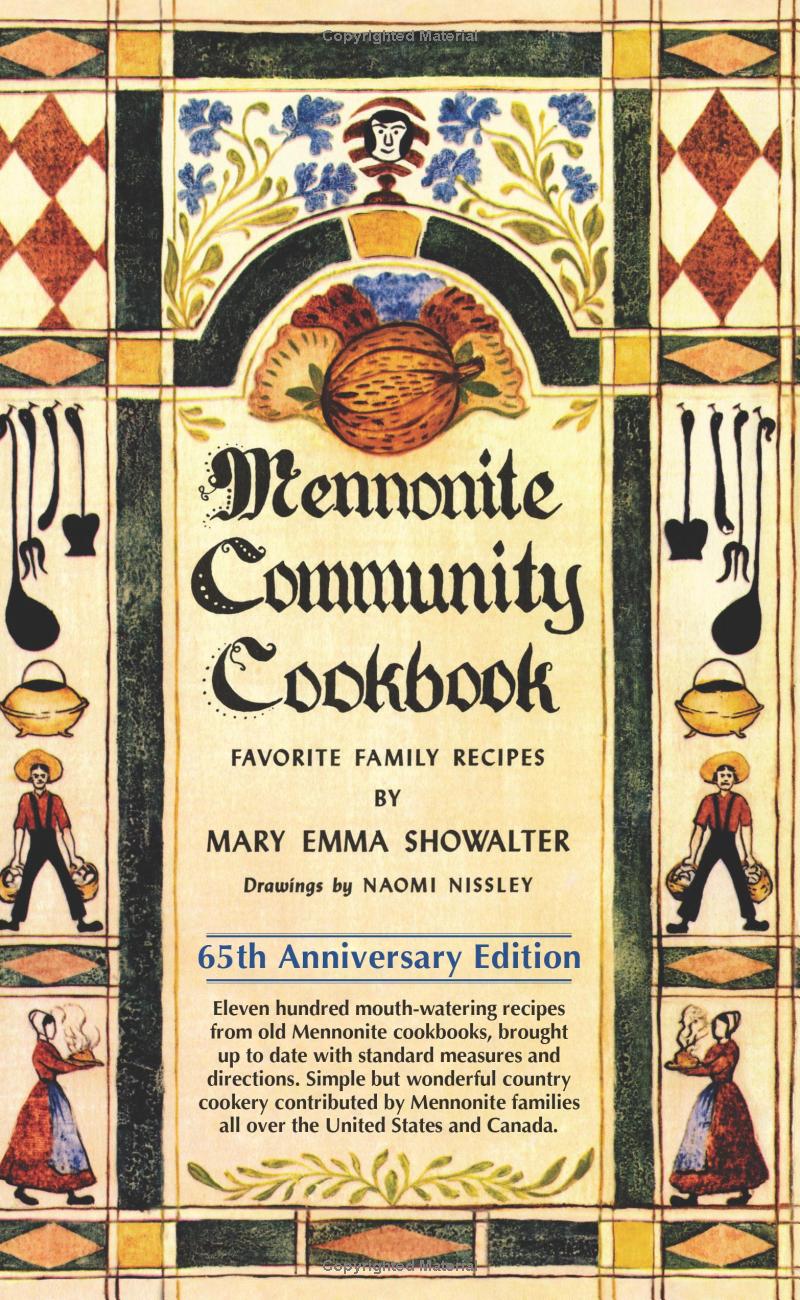
Order the book from Amazon
Mennonite Community Cookbook
